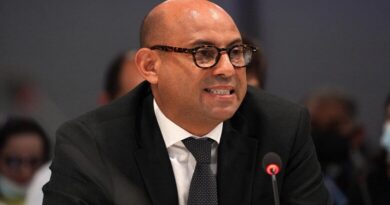Adaptation Fund Board approves $35m new projects for Asia, West Africa, Latin America
In an intersessional decision, the Adaptation Fund Board has approved four new climate change adaptation projects across Latin America, West Africa and Asia while endorsing another three project concepts with approved project formulation grants to develop them further.
The approvals amount to a little over US$ 35 million.
In a separate decision, the Board approved a pilot south-to-south cooperation readiness support package which will enable its national implementing partner in Senegal (Centre de Suivi Ecologique, CSE) to provide tailored peer guidance to the governments of Burundi and Mali throughout the process of having national implementing entities in each of those countries apply for accreditation with the Fund. The US$ 100,000 grant is aimed at enhancing access to climate finance for both countries.
The decisions were made by the Board, which meets in person twice a year in Bonn, Germany in March and October, through an online voting process.
“These decisions are great news for the most vulnerable countries to climate change that the Adaptation Fund serves,” said Adaptation Fund Board Chair Victor Viñas. “The projects are innovative and will help people on the ground with concrete actions, while creating valuable lessons that can be potentially scaled up in other areas that are similarly affected.”
Viñas said he was further happy to see another great example of the Fund’s implementing partners providing guidance and tips to neighbouring countries to help them through the accreditation process. The pilot readiness support package builds upon the Fund’s South-South Grant Programme, which led to the successful accreditation of Banque Agricole du Niger last year following peer support provided to Niger by CSE. Both programmes are part of the Fund’s pioneering Direct Access modality, which strengthens developing country capacities to identify and develop adaptation projects and access climate finance directly through accredited national implementing entities (NIEs) based in the countries themselves.
“We have a growing community of 28 accredited NIEs throughout the world, which share their experiences, best practices and lessons with both the accreditation and project development processes,” said Mikko Ollikainen, Manager of the Adaptation Fund Board Secretariat. “This ultimately enhances access to climate finance and improves adaptation practices on the ground for the most vulnerable communities to climate change.
Project grants approved during the intersessional period include:
A US$ 2.4 million project in Ecuador to be implemented by the Development Bank of Latin America to strengthen adaptive capacity of local populations in the Toachi-Pilatón watershed with ecosystem- and community-based integrated adaptation approaches.
A US$ 4.5 million project in Mongolia by UN-Habitat to enhance climate resilience to flooding in seven vulnerable Ger (nomadic tent) settlements of Ulaanbaatar City, as well as reduce vulnerability to wind and dust storms, and air pollution.
A US$ 14 million regional project implemented by the West African Development Bank in Benin, Burkina Faso, Ghana, Niger and Togo to promote climate-smart agriculture, disseminate innovative and regional agricultural best practices, and knowledge.
A US$ 13.9 million regional project in Chile and Ecuador by the Development Bank of Latin America to reduce climate vulnerability in urban and semi-urban areas in three coastal cities, as well as lessen vulnerability to floods, mudflows and landslides related to climate change by mainstreaming risk-based approaches to adaptation, collaboration and a culture of adaptation.
US$ 257,200 in project formulation grants for implementing partners to further develop regional project concepts in the Ivory Coast and Ghana to build climate resilience in vulnerable coastal settlement communities; in Kazakhstan, Tajikistan and Uzbekistan to address glacier lake outburst floods; and in Djibouti, Kenya, Uganda and Sudan to increase resilience of small farmers and pastoralists in the face of drought.
The Adaptation Fund finances through grants concrete, localized projects and programmes that help vulnerable communities in developing countries adapt and build resilience to climate change. Projects are country-led and encompass a wide range of adaptation sectors, including food security, water management, sustainable agriculture, coastal zone management, disaster risk reduction and forests.
Since 2010, the Adaptation Fund has committed US$ 477 million to support 76 countries, with nearly 5.6 million direct beneficiaries.
Individuals and organizations may donate directly to the Adaptation Fund to help vulnerable communities in developing countries adapt and build resilience to climate change. Donations can be made through the UN Foundation.




